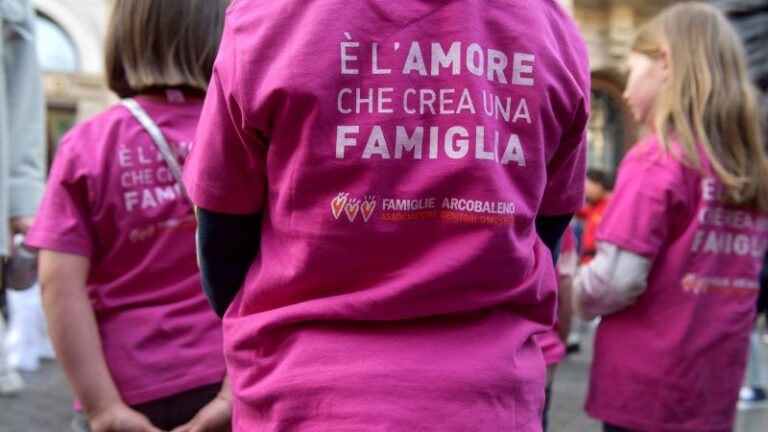CNN
—
The northern Italian city of Padua has started removing the names of non-biological gay mothers from their children’s birth certificates under new legislation passed by the “traditional family-first” government of Prime Minister Giorgia Meloni.
These birth certificates belong to 33 children of Italian women who underwent artificial insemination abroad and then registered their children under the city’s center-left government, led by Sergio Giordani, in 2017.
The prosecutor’s office in Padua confirmed to CNN that, as of Thursday, 27 mothers had been removed from 27 birth certificates.
Giordani came to power promising to remove the traditional “mother” and “father” designations on birth certificates, but this was overturned when Meloni’s government ordered local authorities to stop registering the children of same-sex parents with both of their names.
The measure means that only the biological parent of a child can be named on a birth certificate.
Surrogacy is illegal in Italy, and gay marriage has not been legalized. Because same-sex relationships aren’t recognized in law, the non-biological parent has to make a special case for legally adopting their child.
The measure also stops men in a same-sex relationship from registering the birth of their child with both fathers’ names. Instead, they have to choose one to be the legal father.
“There is no discrimination against children,” Family Minister Eugenia Roccella told parliament when she introduced the bill in June, explaining that the children of gay couples would have access to school and medical services just like those who only have one living parent.
The effect of the move is to limit certain rights for the non-registered parent, and requires them to have permission to carry out everyday family tasks, such as picking the child up from school, or using public services on their behalf.
The local chapter of LGBT campaign group the Rainbow Family Association has launched an official protest.
“These birth certificates have not broken any law since they were signed in a legislative vacuum, which now leaves our children in limbo,” the group said in a statement when the first certificates were annulled in June.
“We ask that our children are nothing but citizens, fully protected, and that our families are not destroyed by the political will of the government to impose a single family model.”
In March, Meloni’s government also introduced legislation to extend the national ban on surrogacy to couples who use such services abroad. If it passes, anyone breaking the law could face a two-year jail term and a fine of more than $1 million.
The law has not yet been debated in parliament, and has been criticized for targeting same-sex couples specifically, but it would also extend to heterosexual couples who use surrogacy services abroad.
Meloni campaigned heavily on an anti-LGBT ticket, and since taking office in October has been vocal about her desire to ensure “all babies are born from a man and a woman.”
Padua is the first city in Italy to retroactively cancel birth certificates, but rights groups are concerned that other regions, especially those controlled by center-right governments, will follow suit.
At the end of June, around 300 women took part in a sit-in outside Padua’s palace of justice after a state prosecutor in the city said the birth certificates of 33 children born to lesbian couples were not legal.
In a peaceful protest, the women held up signs with slogans such as: “The teacher taught us that we are all the same. Didn’t your teacher teach you?”



